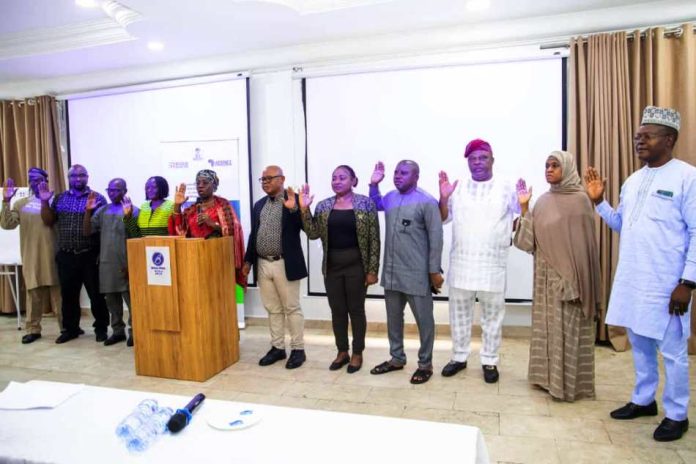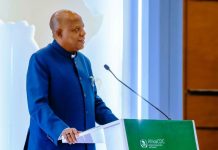
The Federal Government, through the Federal Ministry of Health and Social Welfare convened key stakeholders to address the growing threat of lead poisoning in the country, inaugurating the National Interagency Working Group on Lead Poisoning Elimination in Nigeria.
Coordinating Minister of Health and Social Welfare, Professor Muhammad Ali Pate, represented by the Ministry’s Permanent Secretary, Daju Kachollom, through Mrs. Ladidi Bako-Aiyegbusi mni, Director/Head, Health Nutrition Department, described the inauguration as a historic milestone in safeguarding public health.
Speaking at the opening of a two-day workshop in Abuja on the finalization and validation of the Five-Year National Strategic Plan on Lead Poisoning Elimination, the Minister underscored the urgency of the government’s response.
“Lead poisoning is not just an environmental concern; it is a public health crisis that silently erodes the well-being of our children, causing irreversible damage to their developing brains and nervous systems,” Pate said. “For adults, it contributes to hypertension, kidney dysfunction, and reproductive challenges.”
Nigeria has witnessed devastating outbreaks of lead poisoning, notably in Zamfara State in 2010, where over 400 children died and several others disabled and in Niger State in 2015. More recently, in 2024, fresh cases were reported in Zamfara and Sokoto States.
To combat the crisis, the Ministry has provided laboratory equipment such as lead care machines and spectrophotometers, supported treatment with chelation therapy in collaboration with Médecins Sans Frontières (MSF), enhanced active surveillance, and conducted soil remediation and community education.
The Coordinating Minister noted that the newly inaugurated working group will serve as a national platform to harmonize strategies, strengthen surveillance, and advance evidence-based interventions. Its mandate includes assessing lead exposure, reviewing policies, building health worker capacity, and recommending sustainable financing for long-term solutions.
He stressed that eliminating lead poisoning requires a multisectoral approach, involving the Federal Ministries of Environment, Solid Minerals Development, Steel Development, Agriculture, Water Resources, critical regulatory agencies such as NESREA, NAFDAC, SON, as well as civil society, academia, and development partners including UNICEF, WHO, Resolve to Save Lives, and MSF.
“Our collective priority is prevention, ensuring that our environment, crops, homes, workplaces, and water sources are free from lead contamination,” Prof. Pate declared. “The lives and future of millions of Nigerian children depend on our collective efforts.”
Also, Mrs. Adegbite Olufunmilola Director Epidemiology Division/National Coordinator Lead Elimination Programme (Public Health Department FMoHSW); outlined next steps in the country’s strategy to tackle lead poisoning.
Speaking on the sidelines of a workshop validating the National Lead Elimination Policy and the Five-Year Strategy Plan, Olufunmilola said the documents would soon be launched as part of broader efforts to eliminate lead poisoning across Nigeria.
“With stronger collaboration, community awareness and enforcement, we believe lead elimination in Nigeria can be achieved”, Mrs. Olufunmilola further affirmed
In driving the implementation of Nigeria’s five-year strategy plan on lead poisoning elimination, Dr. Ganiyu Jamiyu, Chief Consultant Epidemiologist Federal Ministry of Health & Social Welfare said the initiative is a major step toward reducing lead toxicity and other heavy metal exposures affecting several states, particularly Zamfara, Sokoto, and Niger.
Speaking on its severity particularly on children, Dr. Jamiyu listed some of its consequences to include mental retardation, life-long disability and in some cases death. “We must save the future generations and, that is why the Coordinating Minister made this initiative a priority”, he further emphasized.
The workshop was organized by the Ministry in collaboration with relevant MDAs to finalise and validate Nigeria’s five-year strategic plan on Lead Poisoning Elimination, setting the stage for effective policy reforms and coordinated national interventions.
Signed
Alaba Balogun
Head, Information & Public Relations
24 September 2025





